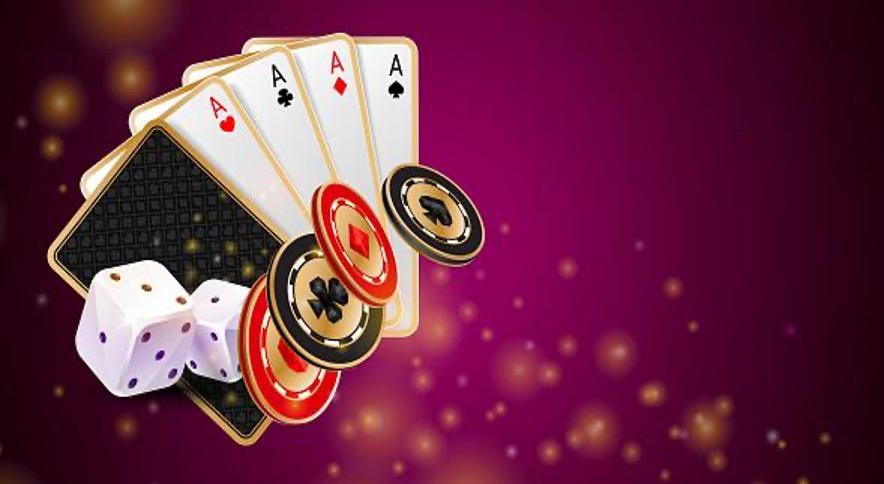7 Simple Strategies for Decreasing Anxiety and Finding Your Inner Calm
varsha July 15, 2023 0 COMMENTS
Anxiety affects millions of people around the world, and it is a debilitating condition that can affect everything from your work life to your personal relationships. Living with anxiety can make you feel like you are constantly on edge, and it can make it difficult to enjoy life to the fullest.
However, there are some simple strategies that you can use to help decrease your anxiety and find your inner calm. In this post, we’ll explore seven of these simple strategies that you can try today to help manage your anxiety.
Table of Contents
1. Mindfulness meditation
One of the simplest and most effective strategies for decreasing anxiety is mindfulness meditation. Mindfulness meditation is a simple and highly effective strategy to help you stay present in the moment, quiet your mind, and ease your worries.
The practice involves finding a peaceful spot to sit, closing your eyes, and placing your attention on your breath. It may sound easy, but it takes some discipline to keep your focus on your breath when you first start.
Whenever your mind begins to wander, gently bring your focus back to your breath. The more you practice, the more you will experience the calming effects of mindfulness meditation.
2. Exercise
One of the most effective ways to reduce anxiety is by exercising. Not only does exercise release endorphins, which can boost your mood naturally, but it can also give you a sense of control over your body.
This can be especially empowering when anxiety feels like it’s taking over. Luckily, there are many ways to incorporate exercise into your daily routine.
Take a walk or run outside, sign up for a yoga class, or choose another physical activity that you enjoy. Soon enough, you’ll be feeling more relaxed and in control of your emotions.
3. Low to moderate doses of THC distillate
If you’ve ever experienced anxiety, you know just how overwhelming it can be. Fortunately, there are a variety of ways to help alleviate anxiety – including the use of THC distillate.
In low to moderate doses, THC has been shown to help relax the body and mind, reducing the feelings of nervousness and worry that often accompany anxiety. THC works by interacting with receptors in the brain and nervous system, producing a calming effect that can help improve mood and promote feelings of well-being.
If you’re curious about whether THC could be helpful for you, it’s always a good idea to talk to your doctor or a qualified professional. And if you’re curious about the best ways to use THC distillate, check out this article on Veriheal.
4. Journaling
Writing in a journal can work wonders in helping you process your thoughts and feelings, as well as reduce anxiety. All you need is a few minutes each day to put pen to paper and let it all out.
Whether you want to jot down whatever comes to mind or prefer using prompts to get your creative juices flowing, journaling can be a powerful tool for self-reflection and self-care.
5. Practice gratitude
When anxiety strikes, it’s easy to get stuck in a negative thought spiral. You might find yourself fixating on everything that’s going wrong in your life, instead of appreciating the things that are going right. That’s where gratitude comes in.
By focusing on the positive things in your life, you can shift your perspective and find a little bit of peace in the chaos. You don’t have to go all out and create a gratitude journal (although that’s a great option if you’re so inclined).
Even just taking a few minutes each day to think about the things you’re grateful for can make a big difference in your mental state.
6. Limit caffeine and alcohol
Both caffeine and alcohol are known to increase anxiety in some people. While both substances can have their benefits in moderation, it’s important to be mindful of how much you’re consuming and how it might be affecting your mood.
If you find that caffeine or alcohol seem to be making your anxiety worse, consider cutting back or eliminating them from your diet altogether. It might not be easy, but your mental health is worth prioritizing.
7. Get enough sleep
Sleep is truly a precious commodity that we take for granted more often than we should. Not getting enough sleep not only affects our physical health, but our mental health as well.
Lack of sleep can certainly take a toll and even cause anxiety, leading to a never-ending cycle of feeling anxious and not being able to sleep. The solution? Make sure you’re getting at least 7-8 hours of sleep per night.
Conclusion
Managing anxiety can be a difficult and ongoing process, but by incorporating these simple strategies into your daily routine, you can start to decrease your symptoms and find your inner calm. Remember to be patient with yourself, and don’t be afraid to seek professional help if you need it. With time and practice, you can learn to manage your anxiety and live a fulfilling, anxiety-free life.
If you have a disability, it’s also worth mentioning that you can reach out to expert psychologists funded by NDIS.
RELATED ARTICLES
Latest Articles
 Creating Dynamic Content Calendars Within a Headless CMSIn TipsMarch 27, 2025When you’re syndicating content for different […]
Creating Dynamic Content Calendars Within a Headless CMSIn TipsMarch 27, 2025When you’re syndicating content for different […] Florida’s Harsh Sun & Your Car: How to Prevent Paint Damage with PPFIn AutomotiveMarch 27, 2025Florida is known for its year-round sunshine, but that […]
Florida’s Harsh Sun & Your Car: How to Prevent Paint Damage with PPFIn AutomotiveMarch 27, 2025Florida is known for its year-round sunshine, but that […] 5 Cool Apps You Probably Didn’t Know AboutIn AppMarch 19, 2025We’ve all heard of mainstream apps such as Facebook, […]
5 Cool Apps You Probably Didn’t Know AboutIn AppMarch 19, 2025We’ve all heard of mainstream apps such as Facebook, […] Top 5 Most Downloaded Apps in the App Store in 2024In TipsMarch 13, 2025The App Store continues to be a hotspot for new and […]
Top 5 Most Downloaded Apps in the App Store in 2024In TipsMarch 13, 2025The App Store continues to be a hotspot for new and […] Top 5 Digital PR and Link-Building Agencies in 2025 for SEO GrowthIn TechnologyMarch 10, 2025In 2025, digital PR and quality backlinks will be […]
Top 5 Digital PR and Link-Building Agencies in 2025 for SEO GrowthIn TechnologyMarch 10, 2025In 2025, digital PR and quality backlinks will be […] How Long To Soak Chia Seeds: A Simple GuideIn TipsFebruary 11, 2025Chia seeds are little round black seeds that have […]
How Long To Soak Chia Seeds: A Simple GuideIn TipsFebruary 11, 2025Chia seeds are little round black seeds that have […] How to Spot Fake Software Licenses and Avoid ScamsIn TechnologyFebruary 4, 2025Image Credit: pexels.com In today’s complex […]
How to Spot Fake Software Licenses and Avoid ScamsIn TechnologyFebruary 4, 2025Image Credit: pexels.com In today’s complex […] What Factors Should Businesses Consider When Choosing A SIP Trunk Provider?In TechnologyFebruary 1, 2025Under the conditions that are related to running a […]
What Factors Should Businesses Consider When Choosing A SIP Trunk Provider?In TechnologyFebruary 1, 2025Under the conditions that are related to running a […] Best ATV Rentals in Dubai for Unforgettable Desert SafarisIn TravelJanuary 29, 2025Image Credit: pexels.com Dubai is a city that offers […]
Best ATV Rentals in Dubai for Unforgettable Desert SafarisIn TravelJanuary 29, 2025Image Credit: pexels.com Dubai is a city that offers […] The Evolution of Paint Protection Film: Innovations You Need to KnowIn TechnologyJanuary 26, 2025Over the years, Paint Protection Film (PPF) has […]
The Evolution of Paint Protection Film: Innovations You Need to KnowIn TechnologyJanuary 26, 2025Over the years, Paint Protection Film (PPF) has […] Your Ultimate Guide to Local SEOIn MarketingJanuary 17, 2025Local SEO can be defined as optimization of the online […]
Your Ultimate Guide to Local SEOIn MarketingJanuary 17, 2025Local SEO can be defined as optimization of the online […] Top 5 Reasons Why the Organic Traffic Is Really Beneficial for BusinessesIn MarketingJanuary 16, 2025Many companies invest heavily in SEO, with the […]
Top 5 Reasons Why the Organic Traffic Is Really Beneficial for BusinessesIn MarketingJanuary 16, 2025Many companies invest heavily in SEO, with the […]
stopie.com is a participant in the Amazon Services LLC Associates Program, an affiliate advertising program designed to provide a means for sites to earn advertising fees by advertising and linking to Amazon.com.
Clicking on an Amazon link from stopie.com does not increase the cost of any item you purchase.
We will only ever link to Amazon products that we think our visitors may be interested in and appreciate learning more about.



